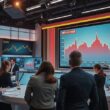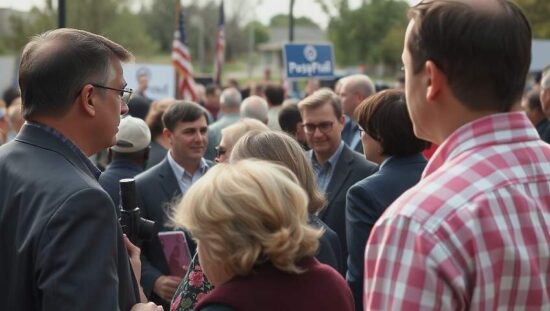The Alternative for Germany (AfD) continues to dominate the German political landscape, holding its position as the leading party with 26% of the electorate, according to the latest Forsa poll conducted between October 21st and 27th, 2025. While the Christian Democratic Union (CDU), led by Friedrich Merz, has managed a slight uptick in voter favour, stabilizing at 25%, it remains consistently behind the AfD, highlighting a persistent challenge for the traditionally dominant conservative bloc.
The Social Democratic Party (SPD) continues its downward trajectory, slipping further to 13%, signalling potential growing discontent amongst traditional working-class voters. The recently formed BSW party also experiences a marginal loss, diminishing to 3%, suggesting difficulties in establishing a broader appeal. The Left party, however, has seen a modest gain, reaching 12%, potentially capitalizing on dissatisfaction with the mainstream political offerings. The Green party and the Free Democratic Party (FDP) remain stagnant at 12% and 3% respectively, suggesting a lack of dynamism on their part.
The poll data paints a particularly bleak picture for Chancellor Friedrich Merz. His approval ratings continue to plummet, with a staggering 72% of German citizens expressing dissatisfaction with his performance – the lowest recorded since he assumed leadership. While enthusiasm remains strong amongst CDU and CSU supporters (72% approval), overwhelming disapproval is evident among voters affiliated with other parties. The Left party (95% disapproval), the Green party (85% disapproval) and even the AfD (97% disapproval) demonstrate widespread rejection of Merz’s leadership, underscoring a significant disconnect between the Chancellor and the broader electorate. This polarization indicates a deeper crisis in political consensus building.
Furthermore, the survey reveals a deepening pessimism regarding the economic outlook. A majority (66%) of respondents now anticipate a deterioration in the economic climate, reflecting the worst sentiment recorded since January 2024. Only 14% express optimism regarding future economic improvements. This growing economic anxiety is likely contributing to volatility in public opinion and fueling support for populist alternatives such as the AfD, creating a climate ripe for political disruption and demanding urgent strategic shifts within the established political order.





